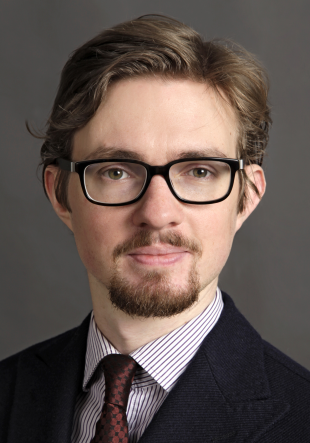Flanders, the Dutch-speaking part of the country in the north of Belgium, is an important economic, cultural, political and knowledge hub in the centre of Europe. How this region decisively shaped the Benelux region and what role it had and currently has in European and global historical development will be researched from the winter semester 2023/24 by Jun.-Prof. Dr. des. Yves Huybrechts as part of his junior professorship at Paderborn University. Here he teaches about the history of Flanders from a perspective of European and global interconnectedness. The position is based at the University's Institute of History and the Belgium Centre. The junior professorship is made possible for a period of six years by the Flanders Ministry of Education, the Dutch Language Union "Taalunie" and the Ministry of Culture and Science of North Rhine-Westphalia (MKW).
Commenting on the establishment of the junior professorship, Nic Van der Marliere, Delegate General of Flanders in Germany, said: "Flanders and North Rhine-Westphalia have been cooperating intensively in several important policy areas for almost two decades. For example, the governments of both countries have already organised three joint cabinet meetings. Nevertheless, I often notice that Flanders remains relatively unknown to many Germans compared to the Netherlands. We share our language, but in many areas Flemings and Dutch are very different. From a Flemish point of view, the establishment of this junior professorship will create fantastic added value in bringing Flanders' history, role in Europe, its culture and language more into focus in North Rhine-Westphalia and throughout Germany."
Promoting intercultural research and international cooperation
"Flanders is a region in the heart of Europe with 6.6 million inhabitants, 60 per cent of the Belgian population, 70 per cent of the Belgian gross domestic product and 80 per cent of Belgian exports. Today, Belgian federalism allows the Flemish community and region extensive autonomy in many areas", says Huybrechts about the importance and special nature of Flanders. At the same time, there are very close ties to other countries and regions: "Antwerp is one of the largest ports in Europe and Flanders is thus strategically important for North Rhine-Westphalia from an economic perspective, among other things. Flanders and North Rhine-Westphalia also work closely together in the area of regional development on topics such as climate protection, transport, energy or the labour market", emphasises the 35-year-old.
In the coming years, the junior professorship funded by the Belgium Centre will be dedicated to the history of Flanders from its beginnings to the present – both in the context of today's Belgium and in the context of existing and past connections to neighbouring countries, Europe and the world. Aspects of politics, culture, public finance, economy and knowledge transfer will be examined.
Ceremonial start with special greetings
Huybrechts started his junior professorship with a small ceremony in October. In his lecture, he spoke about the potentials and problems of Flemish integration history using the example of the customs levy at Antwerp. Among the guests was Prof. Dr. Birgitt Riegraf, President of Paderborn University, who warmly congratulated Huybrechts on the special promotion. Nic Van der Marliere, Delegate General of Flanders, and Marianne Van Boxelaere, Deputy Delegate General of Flanders, also travelled to Paderborn for the occasion.
Digital greetings for the establishment of the junior professorship at Paderborn University were sent by Nathanael Liminski, Minister for Federal and European Affairs, International Affairs and Media of the State of North Rhine-Westphalia, Ina Brandes, Minister for Culture and Science of the State of North Rhine-Westphalia, as well as Ben Weyts, Vice-Minister President and Minister for Education of the Flemish Government, and Prof. Dr. Wim Vandenbussche, Chairman of the International Vereniging voor Neerlandistiek.
On behalf of the University, Prof. Dr. Oliver Reis, Dean of the Faculty of Arts and Humanities, Prof. Dr. Sabine Schmitz and Prof. Dr. Johannes Süßmann, Chair and Vice-Chair of the Belgium Centre, as well as Prof. Dr. Korinna Schönhärl, Speaker of the Institute of History, congratulated the guests.
The event was accompanied by Hermann Hickethier and Frank Oberschelp, who performed Flemish music of the Renaissance and Baroque.
This text has been translated automatically.


